New summer school classes aim to reignite learning after pandemic disruptions
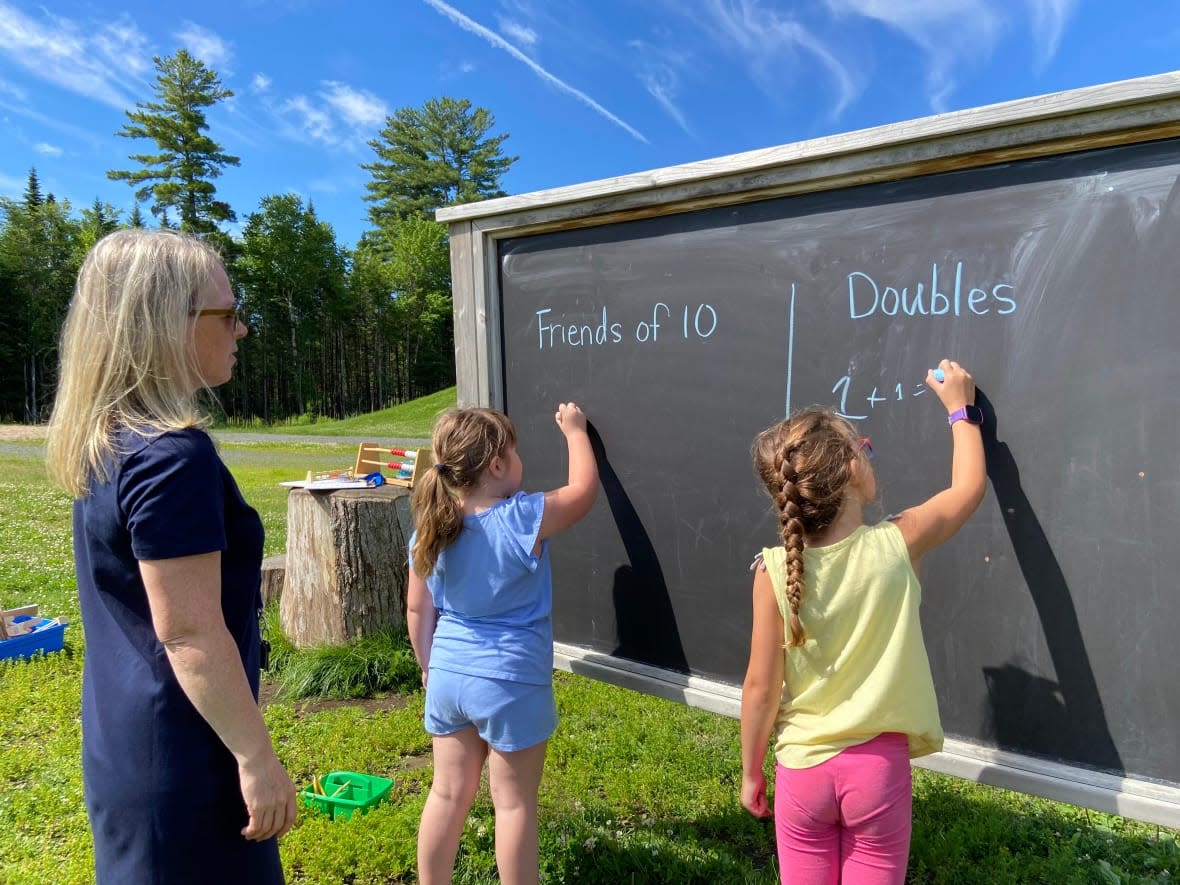
Just a few days into Gibson-Neill Memorial School's inaugural summer math camp, New Brunswick teacher Katie King was already hearing loud and clear how much students — and their parents — are appreciating the new initiative.
The Fredericton elementary school introduced the new program this past week: over five condensed school days, King and her colleagues mixed math lessons in indoor and outdoor classroom spaces with healthy doses of physical activity.
"What we've been most surprised about is the enthusiasm with our children. They run and skip into the building every morning," King said. "[Kids] are going to camps of all sorts this summer and so this is just a different type of camp for them."
In jurisdictions across Canada, summer learning programs are in high demand, with a fresh wave of new school-based initiatives popping up this year. Educators and parents alike are hoping these new offerings give students a boost, provide extra time for catching up and revive appetites for learning again, after more than two years of pandemic-disrupted classes.
Math camp isn't like regular school, said Julia Raynes-Willar, one of the students enrolled at Gibson-Neill. "We're still at school, but it's different... We play a lot at games club and we learn, but we mostly learn more than we do at normal school."
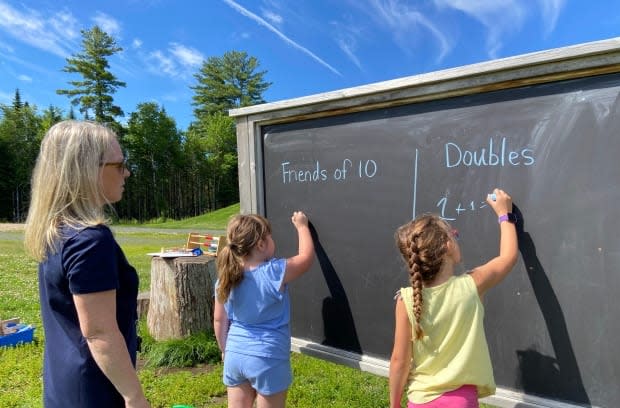
One parent, Heidi Giles, sent a glowing email to teachers midweek, noting how her daughter Phoenix had predicted the camp would turn out to be her favourite of the summer. "She loves math camp. She is so sad that there are only two days left," Giles wrote.
The math lessons themselves aren't new, King said, but in addition to bringing learning outside more often, the program has a student-to-teacher ratio of five-to-one versus the more typical 21-to-one during the year.
Also, she said teachers started the week getting the kids "invested in their own learning" by gauging their interests and asking what they felt they needed to work on most.
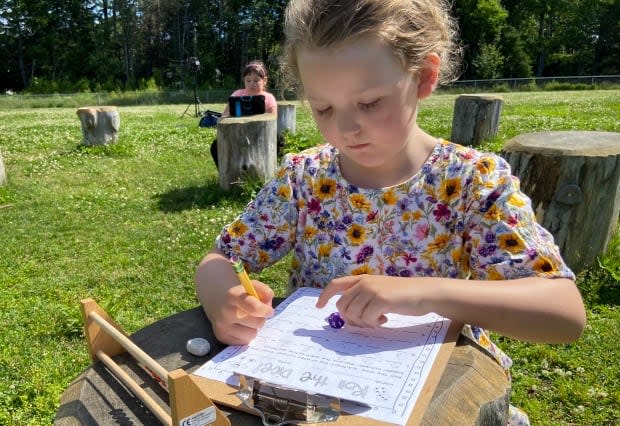
Experiencing pandemic disruptions and changes during the past few school years have made it difficult to build and maintain momentum for learning, according to King, who said summer programs can be a real opportunity to help address learning gaps.
"We could continue this for the next few years, at least, to sort of catch up the learning that has been lost."
Summer school: small investment, big impact
School divisions across the country have reported seeing more interest in their summer learning offerings, from the Burnaby School District in B.C. touting record single-day registrations back in April, to Ontario school boards from Sudbury through the Niagara Region noting more students signing up for virtual and in-person summer school and co-op opportunities.
New Brunswick Education Minister Dominic Cardy also noted a huge appetite for extra learning last month when unveiling a wide range of new summer programs.
This fresh demand and enthusiasm for summer learning programs doesn't surprise Janice Aurini, an associate professor at the University of Waterloo who has done extensive research into summer setback — student learning loss during summer breaks.
"Across the country, our children have been out of school — flipping back and forth between remote learning and in-person schooling — and it's been a tremendous disruption to children's learning. Parents are seeing it, so I'm not surprised by the demand at all," she said in an interview from Burlington, Ont.
If gaps in learning aren't addressed, they grow over time, according to Aurini.
In her research, she's found that even two or three weeks spent in a targeted summer literacy and numeracy program — many of which are presented in a camp-like atmosphere — is a relatively small investment in time, but can have a major impact on a struggling young learner.
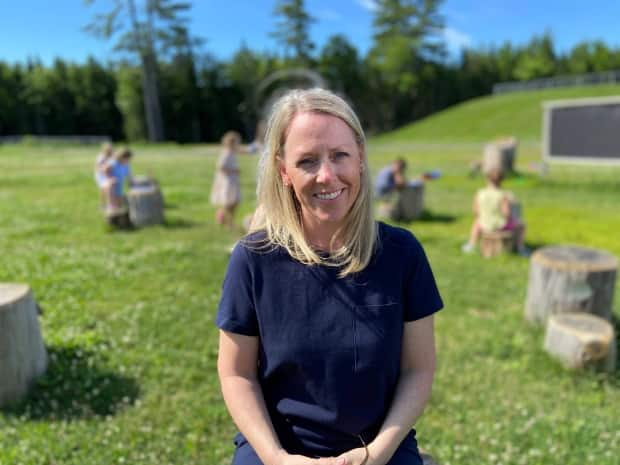
"By the tender grade of three and four, if children aren't able to transition from learning to read to reading to learn ... we lose those kids. They're not able to keep up with their peers and they become increasingly disengaged from school," Aurini said.
"It's critical that we help children catch up during summer vacation so that they can enter school in September and hit the ground running ... and feel good about themselves."
Getting extra support in a smaller class setting and regaining confidence with school work are precisely what Selena Desmond wants for her 13-year-old, who is enrolled in summer learning for the first time this year.
The Toronto parent sought out a program for her daughter, Elizabeth Goulding, after noticing the youngster was having some trouble keeping up in class during the year, wasn't always completing her assignments and wasn't necessarily able to get help when she needed it.
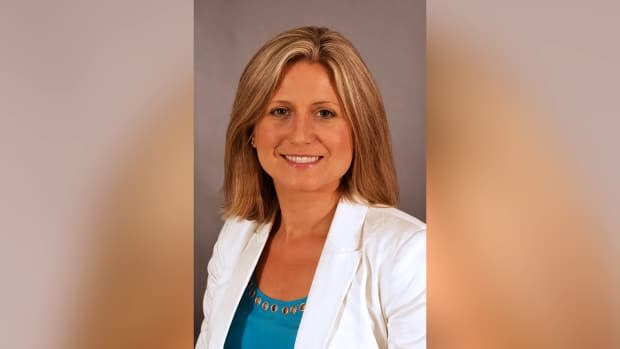
"With the class sizes these days, the teachers don't always have enough time to address every student's needs as much as they may try to," Desmond said. "And I thought, 'Summer school is great. Class sizes are a lot smaller and kids get more one-on-one time with the teachers.'"
She pointed out that while Elizabeth was initially against the summer school idea, the teen is already much more engaged with her learning.
"She's accomplishing more literally in just the one week that she's been here than she would get finished at school [normally]."
Besides more easily getting help when she has questions, Elizabeth said what's also been great is more choice with assignments.
For instance, she's enjoying her current "action project" — she's chosen to examine access to clean water in Indigenous communities — much more than some past history lessons that focused mostly on Europeans and wars. "I feel like it's better when I get to pick," Elizabeth said.
Focus on engagement, rebuilding confidence
At the elementary level, summer programs at schools aren't typically remedial; they focus on enrichment and engagement as teachers try to bridge learning gaps, said DeAndra Mitchell, the summer program site leader at Winchester Jr. and Sr. Public School in Toronto, where Elizabeth is enrolled.
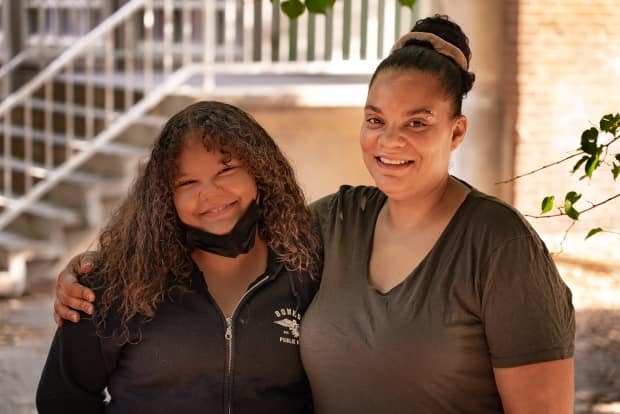
"[With] the ins and outs of the past two years ... Hopefully having this little extra month and small class sizes will help increase their confidence and bridge some of the literacy gaps that we've been noticing," said Mitchell, who is also the school's vice-principal.
"The kids are here for their academics, but the number one thing that I want [summer school] to be is engaging... I want the kids to want to come here every day."
Winchester's new summer program mixes a STEAM (science, technology, engineering, arts and mathematics) focus with fun activities like author visits, gardening workshops, African drumming and Soca dancing, presented with community partners. This year's edition is accommodating students from kindergarten through Grade 8, in English and French Immersion, both in-person and virtually.
"My goal is that they walk away here learning something that they didn't know before and were happy and excited to be here," Mitchell said.
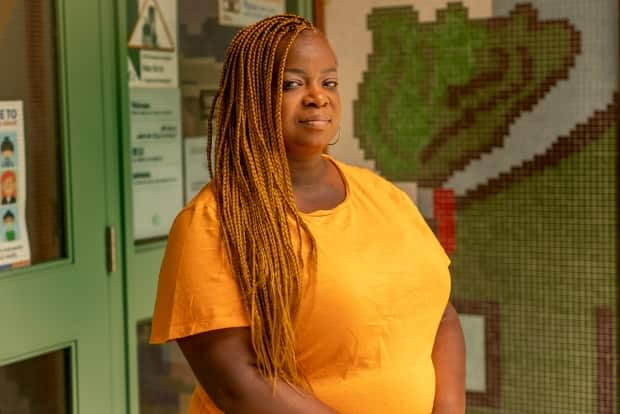
Sanai Morrison's first summer school experience so far has been filled with challenging STEM exercises and opportunities to meet new people, while also letting her work on French, which the immersion student said took a hit over the past few years because of repeated pivots between in-person and online learning.
"It's really great that I get to experience a different environment. I don't know anyone and I've had a great opportunity to learn French, so that's what I'm really happy about," said the 12-year-old, who's enrolled at Winchester this month but normally attends a different school.
With the summer program lasting half the regular school day and only during the month of July, she thinks it strikes a good balance, allowing time for hangouts with friends along with academic improvement.
"In September, I'll feel way more confident about the knowledge that I have, because I've had one-on-one time [with teachers] and I've worked on it in summer school."


